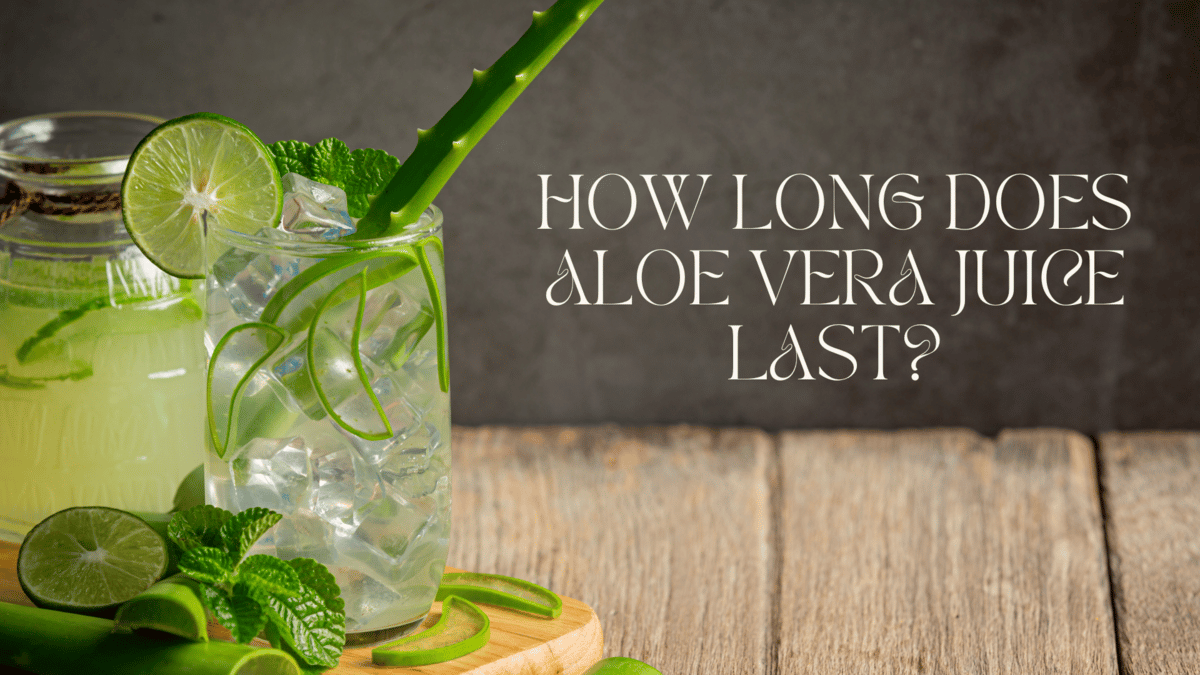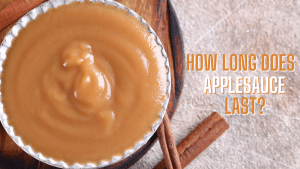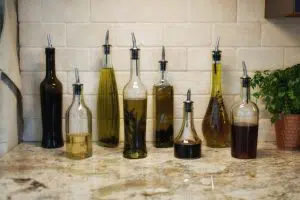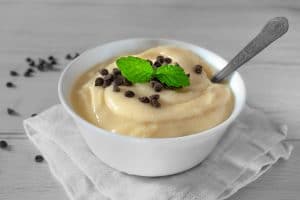How Long Does Aloe Vera Juice Last? Does It Spoil?
Important Note: When you buy through our links, we may earn a commission. As an Amazon Associate we earn from qualifying purchases. Content, pricing, offers and availability are subject to change at any time - more info.
Aloe vera juice, made from the gel of the aloe plant, is highly medicinal with innumerable healing qualities. While the gel is most commonly used for sunburns and other skin issues as a topical application, the aloe juice can be consumed to help with constipation, heartburn, and many other health issues. It is also filled with antioxidants and is an excellent source of Vitamin C. Aloe vera juice is also very good for the skin and helps clear out acne and is beneficial for the hair too, giving it some added luster and shine.
With so many advantages to consuming it, no wonder aloe vera juice has become so popular with supermarkets across the country selling aloe juice. But you may be wondering, how long does aloe vera juice last? Does it spoil? And what is the best way to store it?
- How Long Does Aloe Vera Juice Last?
- How To Make & Store Aloe Vera Juice?
- How to Tell If Your Aloe Vera Juice Has Spoiled?
How Long Does Aloe Vera Juice Last?
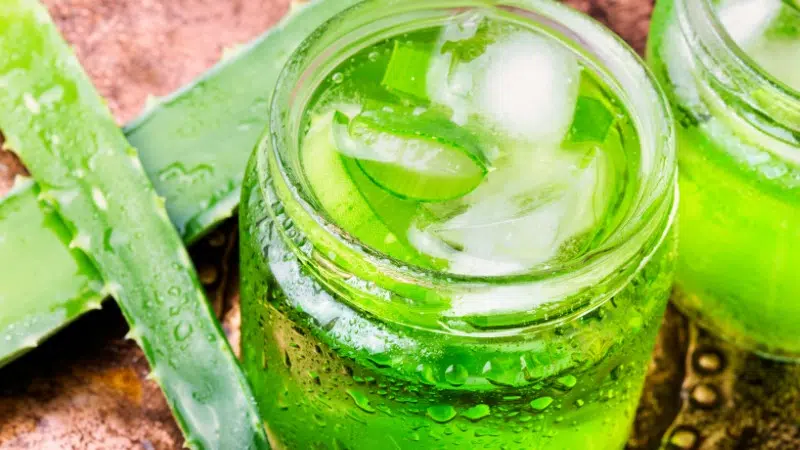
Store-bought aloe vera juice has a much longer shelf life than fresh, homemade aloe juice because of the preservatives and additives used. Bottled aloe vera juice that is bought from the store will last for about 2 – 4 weeks when opened and refrigerated. If you have opened a bottle of aloe vera juice and forgotten to refrigerate it, it is okay, all is not lost. The juice will be fine but remember do not keep the aloe vera juice outside longer than that as it will start turning.
Unopened aloe vera juice can be kept outside if stored in a cool, dark place. But it is recommended to store it in the fridge, even if unopened, and it can last for months to even a year. Generally, bottled aloe vera juice will be good for a week after the best-by date. This is the date printed on bottles to tell you until when the aloe juice will be at its peak quality, after which it won’t spoil but the quality will begin declining.
Homemade aloe vera juice on the other hand has a very short shelf life. It needs to be consumed immediately or has to be refrigerated. It is best to drink fresh aloe vera juice within an hour of making it. Else, store in an airtight container or bottle in the fridge. It will last for 3-4 days.
Now, if you want to freeze aloe vera juice, pour the juice into a freezer-safe container and freeze. Homemade aloe vera juice will last for 2-4 months in the freezer and the store-bought juice will last for 8-10 months. Here’s a quick overview of the aloe vera juice’s shelf life:
| Type of Aloe Vera Juice | Pantry/Counter | Fridge | Freezer |
| Homemade | 1 hour | 3-4 days | 2-4 months |
| Bottled (Unopened) | 1-2 weeks | Best-by date + 1 week | 8-10 months |
| Bottled (Opened) | 24 hours | 2-4 weeks | 8-10 months |
The above table is just an estimate, the life span of aloe vera juice depends on a number of internal and external factors, including the quality of the aloe vera plant or gel used to make the juice, the storage conditions, and even the climate and weather conditions. To eliminate any doubt, go with the dates printed on the bottles.
How To Make & Store Aloe Vera Juice?
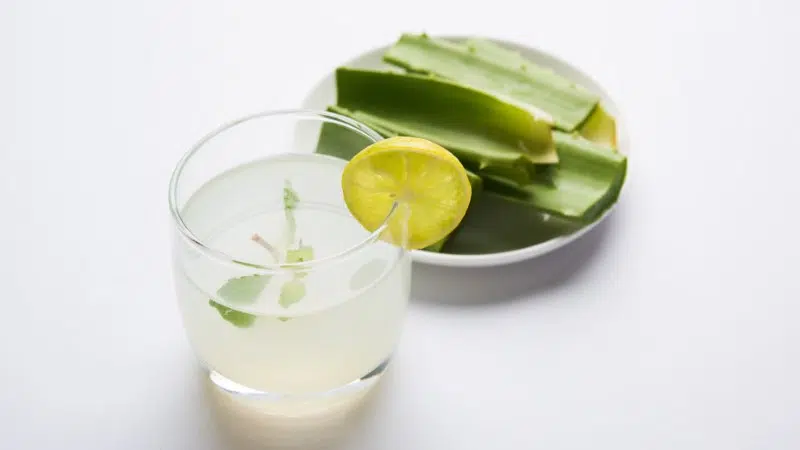
- Aloe vera juice is basically made by combining the aloe gel that is extracted from the aloe plant with either water or some kind of citrus juice. If you are making the juice at home, then to keep the aloe juice as fresh and long-lasting as possible, make the juice as soon as you extract the gel from the flesh of the aloe plant. Then, immediately refrigerate. For this purpose, it is recommended that you only extract enough gel from the plant that is required to make the amount of juice you want.
- If you have a lot of gel or have extracted more aloe gel than you need, you can freeze the gel. Pour the extracted gel into ice cube trays and freeze. Once frozen, transfer the gel into Ziplock bags or airtight freezer containers and freeze for 6 months. You can thaw the cubes in the fridge overnight and then use them to make the juice.
- You can also thaw the gel on the counter for a few hours.
- Do not hasten the thawing process by microwaving it, the gel doesn’t react well to the heat, and not only does it become mushy, but it also loses some of its effectiveness and taste.
- Do not refreeze thawed aloe vera gel. You can make it into juice and then refrigerate it.
- To store homemade aloe vera juice in the fridge, pour it into a bottle or jar with a tight lid and keep it in the coolest corner of the fridge. Ensure that it is not subject to constantly changing temperature.
- For bottled, store-bought aloe vera juice, you can keep it in the bottle it came in or transfer it into a dry, airtight bottle or container.
- Ensure there is no moisture in the container you are storing your aloe vera juice in as this can cause bacteria to grow making the juice unsafe to drink.
- You can freeze store-bought aloe vera juice in any freezer-friendly container. But it is most effective when you pour the juice into an ice tray and freeze and then transfer it into a freezer-safe bag. The biggest advantage of doing that is you can take out and use just what you need instead of thawing the whole block.
How to Tell If Your Aloe Vera Juice Has Spoiled?
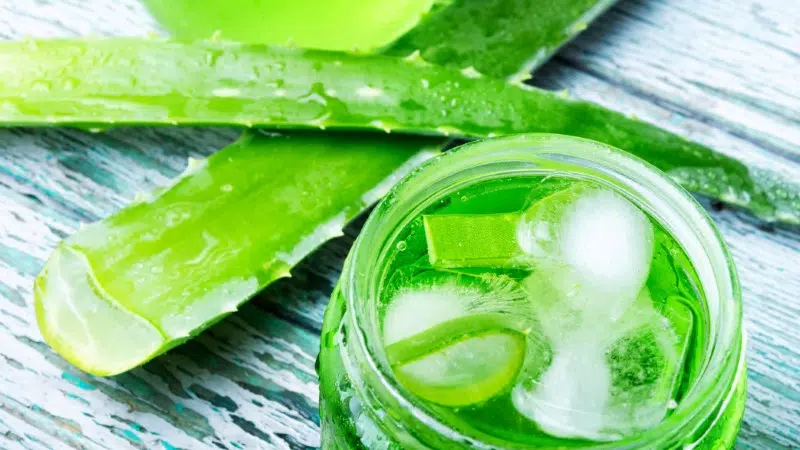
- The most distinct way to tell if your aloe vera juice has spoiled is by its smell. Aloe vera generally has a fresh smell, which is much milder in its juice form. But if it has spoiled, it will have a very sour note to it. If that is the case, dispose of it as soon as possible. Good, unspoiled aloe vera juice itself can sometimes cause side effects like gas, bloating, and diarrhea. Spoiled aloe vera juice therefore should not be consumed.
- Any sign of discoloration is another indication of spoilage. If your juice has a browning tinge to it or has a noticeably different hue, then it has gone bad.
- If the smell and color do not show any signs of spoilage but you are still not sure, then a quick sip will let you know for certain. If the juice is bitter or sour, then that is a sure-fire sign that it has spoiled.
- If your aloe juice shows none of the above signs, but you are not sure, then it is better to get rid of the juice. It is better to be cautious when dealing with expired or even possibly-expired food products.
